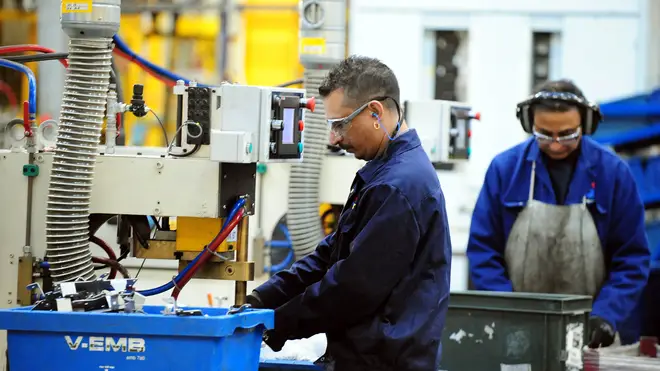
James O'Brien 10am - 1pm
1 December 2020, 10:34

The closely-followed IHS Markit / CIPS Purchasing Managers’ Index hit 55.6 in November – anything above 50 is seen as a sector in growth.
The manufacturing sector grew at its fastest rate in 35 months in November as suppliers stockpiled ahead of the Brexit transition period ending, according to new data.
The closely-followed IHS Markit / CIPS Purchasing Managers’ Index (PMI) hit 55.6 last month – anything above 50 is seen as a sector in growth – remaining in positive territory for the sixth month in a row. October recorded a PMI score of 53.7.
Managers reported an uptick in production volumes and said this was linked to companies re-opening following Covid-19 closures earlier in the year.
Machinery and equipment orders for warehouses were particularly strong, but the sector was held back by a fall in consumer goods orders with decreases in both production and new business, the survey found.
Rob Dobson, director at IHS Markit, which compiles the survey, said the falls in consumer products was due to “depressed household sentiment caused by mounting job losses and the UK re-entering lockdown.”
He added: “Whether the upturn of manufacturing production can be sustained into the new year is therefore highly uncertain, especially once the temporary boosts from Brexit purchasing and stockbuilding wane.”
Manufacturers are confident for the future, however, with the survey finding optimism in the sector is at levels not seen since late 2014.
Around 61% of those surveyed said they expect output to rise over the coming year.
However, job losses continue and employment in the sector fell for the tenth consecutive month, the survey added.
Duncan Brock, group director at the chartered institute of Procurement & Supply (CIPS) warned that job losses in the UK has affected consumer confidence, which is having a knock-on impact.
He added: “Panic buying aside, there was little in the figures to suggest a sustainable recovery once we move into 2021.
“Job shedding continued last month and new business could drop off a cliff in January as potential border disruptions are thrown into the mix.
“The prospect of an extended recession continues to hover above the UK economy until clarity around a Brexit deal is reached and hopes for an effective vaccine supply chain are realised bringing much-needed normality.”